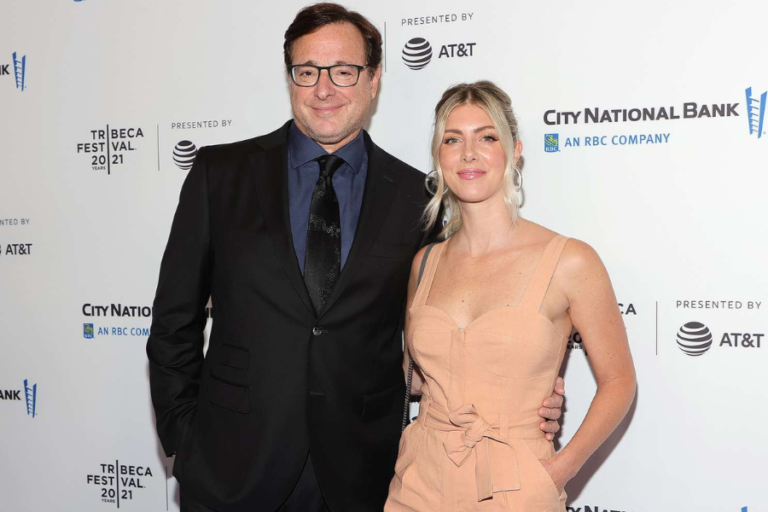
Who is Soon Ja Du?
On December 27, 1941, in tranquil North Chungcheong Province, South Korea, Soon Ja Du was born. At 35 in 1976, she and her family moved to Los Angeles, changing her life. With a literary background, she graduated from a top Seoul institution.
Soon Ja Du and her husband passionately participated in the Valley Korean Central Presbyterian Church in North Hills, Los Angeles, guided by their Christian faith. Their deaconship showed their religious commitment. Her father was a doctor and her mother a nurse, creating a strong family background.
On December 15, 1958, Soon Ja Du married Billy Heung Ki Du for life. They have two sons, Joseph and Michel, and a daughter, Sandy. Sandy’s 1991 theological studies at Biola University highlighted the family’s strong religion and education ties.
Ja Du’s life was filled with different employment experiences. She began her career as a couch assembler and eventually became a proficient crotchetier at St. John Knits. Her life changed in 1981 when she and her husband bought Empire Liquor shop, a convenience shop in Los Angeles’ lively San Fernando Valley.
In 1991, Empire Liquor Store saw a heartbreaking occurrence that haunted Soon Ja Du. The unfortunate killing of Latasha Harlins on those premises prompted judicial procedures. After being convicted of voluntary manslaughter, Soon Ja Du’s life changed forever.
Soon Ja Du Wiki Bio
| Name | Soon Ja Du |
| Date of birth | December 27, 1941 |
| Birth place | Chungcheong Province, South Korea |
| Age | 82 years old ( As of 2023) |
| Education | Graduated |
| Religion | Christianity |
Soon Ja Du Career
Of course! This is Soon Ja Du’s career story. She started her career carefully assembling couches. Later, she became a crotchetier at St. John Knits, using her talented hands in garment manufacture.
Her career changed in 1981 when Soon Ja Du and her husband, Billy Heung Ki Du, made a big decision. They started a business and bought Empire Liquor shop, a San Fernando Valley convenience shop. Her career change was life-changing.
What Happened to Soon Ja Du?

Let’s examine the tragedy that occurred at Soon Ja Du’s family’s Empire Liquor Market on March 16, 1991. Korean immigrant Soon Ja Du was involved in this heartbreaking occurrence.
Latasha Harlins, 15, entered the store and loaded a $1.79 bottle of orange juice into her bag. Surveillance footage showed a woman holding money as she approached the counter. In a terrible mistake, Du missed the money and accused Harlins of stealing the orange juice.
This accusation sparked a brief fight between Du and Harlins. Harlins left the orange juice on the counter and left the business. In a stunning and terrible twist, Du shot Harlins in the back of the head as she left. This tragic incident killed the girl.
After this tragic shooting, Ja Du was accused and tried. She testified that the Harlins altercation put her life at peril. Additionally, the shooting handgun had unlawful trigger modifications to make it more sensitive.
Du was found guilty of voluntary manslaughter. However, Judge Joyce Karlin’s punishment sparked indignation and debate. Du received five years of probation, 400 hours of community service, and a financial penalty instead of prison. Many black Los Angeles residents were outraged by this punishment leniency, believing justice had not been done.
The gunshot killing of Latasha Harlins and Soon Ja Du’s controversial punishment fueled citywide resentment. After the Rodney King decision, the 1992 Los Angeles riots caused significant discontent and civil disorder.
San Fernando Valley resident Soon Ja Du was reported on the 15th anniversary of the L.A. Riots. Unfortunately, her location has not changed since then..
Soon Ja Du Husband and Childrens

Let’s start with Soon Ja Du’s wedding to Billy Heung Ki Du on December 15, 1958. The couple had three children from this spiritual connection. They have two sons, Joseph and Michel, and a daughter, Sandy.
Sandy, Soon Ja Du and Billy Heung Ki Du’s daughter, was no average student. She explored her spiritual and intellectual side through religious studies. She attended prestigious Biola University in 1991 for her studies.
This family narrative shows how love, loyalty, and expertise carry across generations. This chapter adds depth and purpose to the Du family’s life story.
Has Soon Ja Du passed away?

We return to California’s San Fernando Valley in Ja Du’s story. According to reports, she lived here. Since the 15th anniversary of the L.A. Riots, her whereabouts have been unknown as the trail freezes.
Her journey began in 1976 when she and her family moved to Los Angeles aged 35. With a foundation in literature, she graduated from a Seoul university, demonstrating her dedication to education.
Soon Ja Du was a Christian who joined the Valley Korean Central Presbyterian Church in North Hills, Los Angeles, with her spouse. Their service as deacons and deacons showed their dedication to their church. Her parents, a doctor and a nurse, were prominent healthcare professionals.
She married Billy Heung Ki Du on December 15, 1958, starting a lifetime of marriage. A daughter named Sandy and two sons named Joseph and Michel were theirs. Sandy, their daughter, studied theology at Biola University in 1991, combining faith and academia.
Soon Ja Du’s career was varied. She started as a couch assembler and then a crotchetier at St. John Knits, using her skilled hands in the clothing industry.
As she and her husband entered entrepreneurship in 1981, they bought Empire Liquor Store, a convenience store in San Fernando Valley, Los Angeles.
This store would play a devastating role in her story. Soon Ja Du entered the legal spotlight with the March 1991 shooting of Latasha Harlins. Her conviction for voluntary manslaughter, which did not result in prison time, angered the victim’s relatives.
After that, Soon Ja Du’s life was kept private. Her final known location was the San Fernando Valley in California, and her life afterward is unknown.
Where is Soon Ja Du Now?
It was rare to see Korean-born Soon Ja Du behind the Empire Liquor counter. Usually, her husband, Billy Hong Ki Du, or one of her sons ran this neighbourhood convenience store. On the tragic morning of March 16, 1991, the story changed. Soon, Ja Du ran the store while her husband worked outside.
The shooting of Latasha Harlin shocked the community and started Soon Ja Du’s legal battle. In court, she passionately recounted her story. The shooting made her fear for her life. Being unlawfully changed to have a more sensitive trigger made the pistol more prone to fire inadvertently, complicating the case.
Soon Ja Du, 51, was convicted of voluntary manslaughter in November 1991, a courtroom verdict that rippled throughout justice. However, Judge Joyce Karlin’s sentencing verdict was controversial. Soon Ja Du received time served, 400 hours of community service, a $500 fine, and five years of probation despite the severity of the offence. The victim’s family was outraged by this verdict, believing justice had not been done given the tragedy.
At the 15th anniversary of the Los Angeles Riots, Time Magazine stated that Soon Ja Du lived in the San Fernando Valley. After that, her whereabouts have been unknown, shrouding her journey.
FAQs
Q1.Who’s Soon Ja Du?
A1. South Korean Soon Ja Du was born December 27, 1941. The literary-trained woman relocated to LA in 1976. She and her husband were Valley Korean Central Presbyterian Church members.
Q2. Career did Soon Ja Du pursue?
A2. Ja Du became a couch assembler and St. John Knits crotchetier. She and her husband bought Empire Liquor Store, a San Fernando Valley convenience store, in 1981.
Q3. Which tragedy is linked to Soon Ja Du?
A3. Soon Ja Du was tragically implicated in her family’s Empire Liquor Store disaster on March 16, 1991. Soon Ja Du shot and killed 15-year-old Latasha Harlins over a $1.79 orange juice container.
Q4. How did the shooting-related legal actions end?
A4. Ja Du was convicted of voluntary manslaughter. Outrage followed Judge Joyce Karlin’s lenient punishment. Her five-year probation, 400 hours of community service, and financial penalty kept her out of prison.
Q5. What became of Soon Ja Du after her trial?
A5. Since the 15th anniversary of the Los Angeles Riots, Soon Ja Du’s whereabouts are unknown. A San Fernando Valley resident, she was reported. Her life since then is private.
Conclusion
In summary, the article follows Korean immigrant Soon Ja Du and her family in Los Angeles. It covers her professional changes, the 1991 Empire Liquor Store shooting, and the contentious judicial proceedings. She discusses her family, daughter’s education, and Soon Ja Du’s favorable sentencing and community influence. The essay ends with Soon Ja Du’s disappearance since the 15th anniversary of the Los Angeles Riots.



